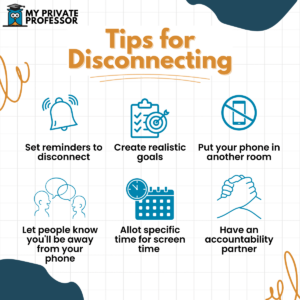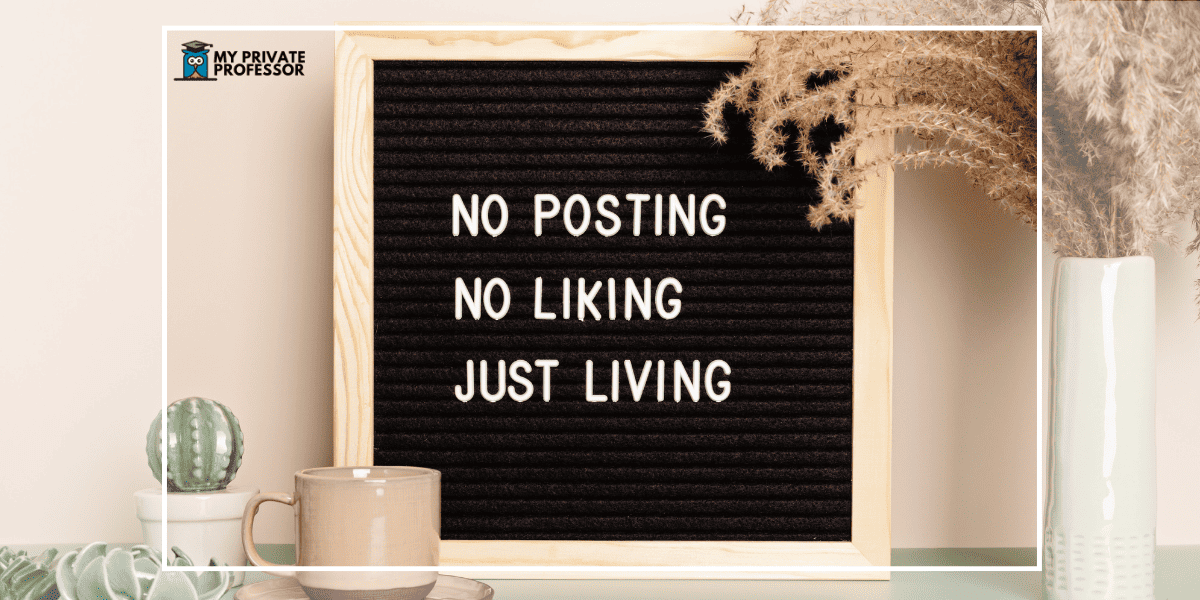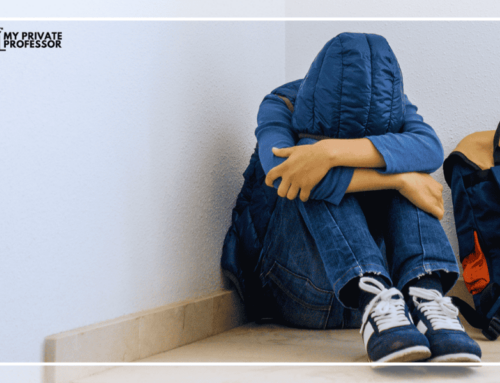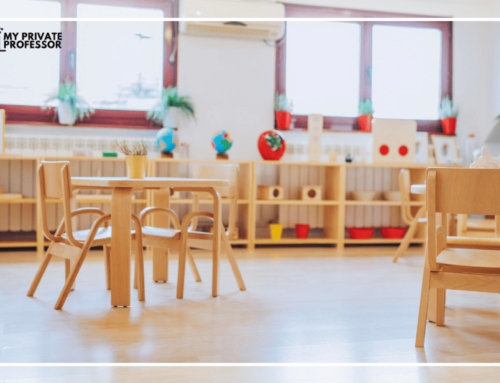In our technologically-driven, fast-paced society, it seems that we rarely take time to disconnect. That is, when we have downtime, we often turn to our screens to scroll. In turn, we are disconnecting from those around us.
As a student, you may feel obligated to tune in to whatever’s happening on social media. After all, who likes to feel out of the loop? But consider this: spending all that time on social media will actually push you out of a different loop. Out of the loop of your individual needs and the world around you. Which is why it’s an excellent idea to allow yourself to disconnect from your screens every now and then.
You may not think much of it when you hear about the potential downsides to always being connected. And yes, going against the grain is definitely easier said than done! But from personal experience, I can attest to the fact that once you do it—disconnect—it gets easier. And this is largely due to the real benefits that you’ll experience.
Here’s the thing: understanding the downsides of social media is great, but it’s not good enough. Let’s go a step further. Let’s consider all the ways in which it’s beneficial to not only understand those effects, but to actually take the time to disconnect.
1. Enhance relationships
Let’s face it: constantly being connected to your phone means you’re taking time away from, well, everything.
This screen time inevitably dips into time you could be spending with the important people in your life or engaging in self-growth. And you may not recognize that until it’s too late. By prioritizing virtual connections, you inevitably, to some extent, neglect opportunities for growth. 
It’s even more important to note that media habits can actually worsen your precious interpersonal skills for which you’ve worked so hard to cultivate. These are skills that are increasingly important in school, the workplace, and beyond.
In fact, studies have shown that as we’ve become more technologically-oriented, our interpersonal relationship and those uniquely-human skills have worsened. Which is a little funny, because it’s social media.
Since 1976, the number of times per week that teenagers went out with friends was steady for almost 30 years, according to psychologist Jean Twenge. But in 2010, this number plunged down. According to Twenge, it was during the same time (around 2012) that social media began to really take off. Thus, it seems evident that the two (frequency of teens seeing people in person and the rise of social media) may have a direct relationship.
Making an effort to disconnect from your screen frees up your time to have meaningful, face-to-face interactions, where you can connect with your friends on a personal level.
Disconnecting from social media every now and then allows you to not only spend time with the people in your life, but also recognize relationships which need nurturing. And, by connecting with people in a real way, you’ll be working on your people skills— always a plus.
2. Improve sleep
Surely you’ve heard about the harmful effects of the blue light which screens emit. Blue light not only causes issues such as headaches, but it keeps you stimulated (and thus awake) for longer.
Have you considered how often you activate your brain before bed? This has seemingly become a normal wind-down activity (which is ironically comical). And really, considering those negative effects above, it’s no shock that there’s a negative association between social media usage and sleep quality and quantity.
Taking time to disconnect, especially before bed, will help improve your sleep. As a result, you’ll be more equipped to remain engaged all throughout your challenging physics class the next day. Plus, you’ll be less stressed before your exams and more alert during them!
3. Decrease anxiety
Can you imagine a time when social media wasn’t around?
Our brains are literally programmed to react to stimulus and reward, and the phone acts as the stimulus.
In fact, scientists have found that these “rewarding social stimuli” activate the same “reward pathways” that are engaged by slot machines and addictive drugs. And the ultimate goal is simply to get us to continue using the products.
With its constant pinging of texts, retweets, likes, and comments, your phone provides a dopamine surge, producing elation. 
This surge, however, quickly crashes, resulting in the desire for more. This craving produces anxiety, which simply drives you to seek more dopamine. And there it is—the cycle of social media.
You may have learned about how social media usage can exacerbate anxiety. But sometimes, people explain this effect as a two-way relationship. That is, research has suggested that those who have higher levels of anxiety use social media more often, and vice versa.
However, a recent paper did a deep dive on the subject, looking at the different colleges where Facebook first launched, and how this impacted student mental health. The researchers looked at the rollout of Facebook on campuses between 2004 and 2006, measuring how student mental health changed.
Conveniently, the researchers could easily look at mental health changes. At the time, colleges were administering a national survey on student mental health.
The researchers found that, almost immediately after Facebook arrived on campuses, there was a rise in mental health issues, such as anxiety and depression.
One reason why social media can have a major effect on your mental health is due to something called the “Selfie Effect”. This refers to when you are scrolling through an unlimited supply of picture-perfect images, and then comparing them to your own selfies. And this behavior can really affect your psychological health.
Before social media, we had magazines—and this effect definitely came into play here. But the thing is, once you read the magazine, it’s done. With your phone, you can access photo after photo of the people you’re interested in looking at. So, comparison isn’t new—but accessibility is.
One 2021 study found that after taking a break from social media, most students reported immediately having reduced anxiety.
Another 2021 study confirmed that limiting social media use (for just one week!) improved well-being among students.
Ultimately, making time to disconnect will leave you with fewer stresses that take up your energy and angst throughout the school day.
4. Increase productivity
In the age of social media, it’s no surprise that we have trouble allocating our time.
There are temptations all over our screens, making it near impossible to focus and maintain a consistent work schedule. This may be particularly difficult for students who, after spending the day in school, must go home and spend hours of time doing homework and studying—which often involves lots of screen time. 
In fact, studies show that increased social media usage directly correlates with decreased productivity.
Limiting social media time will permit you to devote more time to priority tasks. Consequently, your increased focus will foster higher quality work.
Plus, when you reduce the amount of time you spend on task switching (for instance, transitioning from social media to work), you’ll free up much more time to spend with your friends!
5. Be present!
Have you ever tried to have a conversation with someone, only to watch them become entirely immersed in their phone? It’s not only frustrating and disrespectful, but it’s slightly scary to see how easily we can check out.
The enticing phone screen with its addictive properties can lure you away from real life, encouraging you to engage in a detached reality. But honestly, it’s not really your fault.
The truth of the matter is that big tech companies created their products (i.e. Facebook, Instagram) with, to some degree, the intention of stealing your focus. Why? So that you increasingly use their products and as a result, they make more money.
Regularly allowing yourself to disconnect from your screen allows you to connect with real life, creating time to improve relationships, work on yourself, and simply not miss out on life!
Through becoming more attuned to the present moment, you will not only become more aware of your surroundings, but you’ll feel more connected to your mind and body. And that makes it a whole lot easier to understand what you want and need.







